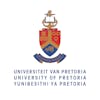|
South Africa’s two largest political parties – the African National Congress and the Democratic Alliance – have reached agreement to form a unity government. But can they make it work in a country with such deep socio-economic and political cleavages? South Africa is one of the most unequal societies in the world, whether measured by income or wealth. It also has one of the highest unemployment rates. Both these socio-economic maladies disproportionately affect the majority African population. Joleen Steyn Kotze sets out what the partners in the unity government must do to make it work.
A new study has found that there are almost 2,000 lakes and dams in Africa that are suitable for giant, floating solar panel systems. Environmental scientists R. Iestyn Woolway and Alona Armstrong reveal that by covering just 10% of these large water bodies with solar power projects, several African countries could meet a large percentage of their energy needs.
One of Africa’s greatest crises is that of refugees. Tens of millions of people from the continent live outside their country of birth, having been forced to move because of conflict and hardship. As tomorrow is World Refugee Day, we’re sharing some articles that provide unique insights into their plight.
|

|
Thabo Leshilo
Politics + Society
|
|

Joleen Steyn Kotze, University of the Free State
Elite political culture matters, especially in the context of a unity government. To succeed, party leaders must embrace the politics of collaboration built on trust.
|

Iestyn Woolway, Bangor University; Alona Armstrong, Lancaster University
Floating solar panel systems on lakes and dams could generate much of Africa’s energy, decrease greehouse gas emissions, and stop freshwater evaporating, new research has found.
|

Ian-Malcolm Rijsdijk, University of Cape Town
The filmmakers followed the Reclaim the City campaign for six years to document their struggle for accommodation in Cape Town’s elite ‘city bowl’.
|

Kara Ross Camarena, Loyola University Chicago
Tanzania’s refugee policy in the 1990s is a good example of how geopolitics affects ordinary refugees.
|

Chris Changwe Nshimbi, University of Pretoria; Inocent Moyo, University of Zululand
New tech tools are more intrusive and subtler than physical barriers. They invade migrants’ privacy and are a threat to personal security.
|
|
|
-
Cristiano d'Orsi, University of Johannesburg
Many African countries host large numbers of asylum seekers. But should they be held in camps, or be allowed to integrate into cities?
-
Evan Easton-Calabria, University of Oxford
Most refugees rarely gain citizenship in host countries and the work that is available to them is informal, irregular and precarious.
-
Amanda Poole, Indiana University of Pennsylvania; Jennifer Riggan, Arcadia University
Time in the camps does not move forward and educated refugees are stuck, without the opportunity to create a path for a better future.
|
|
|
|

Parvati Nair, Queen Mary University of London
Refugee law puts humanitarianism above considerations of state sovereignty.
|

Cristiano d'Orsi, University of Johannesburg
Without refugee status people aren’t able to receive valuable support, like the right to live and work in a country.
|
From our international editions
|
-
Jostein Hauge, University of Cambridge
For the past half century, successive US governments have championed free trade. But do they practice what they preach?
-
Samuel J. White, York St John University; Philippe B. Wilson, York St John University
Mouse studies have shown ultra-processed foods alter the gut microbiome – which has a major influence on proper immune function.
-
Scott Denning, Colorado State University
The answer depends in part on where you live. If it’s extremely hot and humid, the health risks are much higher.
-
Jesus Casquete, Universidad del País Vasco / Euskal Herriko Unibertsitatea
Our fast-track society has made voters impatient – the far right promises fast-track, simplistic solutions to complex problems.
|
|
| |
|
|
|
|

|
1 July 2024
•
Johannesburg
|

|
1 - 4 July 2024
•
Pretoria
|

|
18 - 19 July 2024
•
Bellville
|

|
|
|
|
| |
| |
| |
Would you like to republish any of these articles?
|
|
It’s free to republish, here are the guidelines.
Contact us on africa-republish@theconversation.com in case you need assistance.
|
| |
| |
| |
| |
|
|